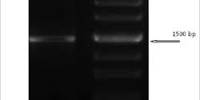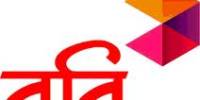An Overview of HSBC Group:
The HSBC Group is named after its founding member, The Hongkong and Shanghai Banking Corporation Limited, which was established in 1865 in Hong Kong and Shanghai to finance the growing trade between China and Europe.
Thomas Sutherland, a Hong Kong Superintendent of the Peninsular and Oriental Steam Navigation Company helped to establish this bank in March 1865. Throughout the late nineteenth and the early twentieth centuries, the bank established a network of agencies and branches based mainly in China and South East Asia but also with representation in the Indian sub-continent, Japan, Europe and North America.
The post-war political and economic changes in the world forced the bank to analyze its strategy for continued growth in the 1950s. The bank diversified both its business and its geographical spread through acquisitions and alliances.
HSBC Holdings plc, the parent company of the HSBC Group, was established in 1991 with its shares quoted on both the London and Hong Kong stock exchanges. The HSBC Group now comprises a unique range of banks and financial service providers around the globe.
HSBC maintains one of the world’s largest private data communication networks and is reconfiguring its business for the e-age. Its rapidly growing e-commerce capability includes the use of the internet, PC banking over a private network, interactive TV, and fixed and mobile, including wireless application protocol or WAP-enabled mobile, telephones.
HSBC Mission Statement:
“We aim to satisfy our customers with high quality service that reflects our global image as the premier international bank”
Objectives of HSBC:
HSBC’s objectives are to provide innovative products supported by quality delivery of systems and excellence customer services, to train and motivate staffs and to exercise social responsibility. By combining regional strengths with group network HSBC’s aim is to be the one of the leading banks in its principle markets. HSBC’s goal is to achieve sustained earnings growth and to continue to enhance shareholders value.
HSBC History:
The HSBC Group has a history, which is unique. Many of its principal companies opened for business over a century ago and they have a history rich in variety and achievement.
Foundation and Growth:
The inspiration behind the founding of the bank was Thomas Sutherland, a Scot who was then working as the Hong Kong Superintendent of the Peninsular and Oriental Steam Navigation Company. Realizing the considerable demand for local banking facilities both in Hong Kong and along the China coast and he helped to establish the bank in March 1865. Then, as now, the bank’s headquarters were at 1 Queen’s Road Central in Hong Kong and a branch was opened one month later in Shanghai.
Throughout the late nineteenth and the early twentieth centuries, the bank established a network of agencies and branches based mainly in China and South East Asia but also with representation in the Indian sub-continent, Japan, Europe and North America. In many of its branches the bank was the pioneer of modern banking practices. From the outset, trade finance was a strong feature of the bank’s business with gold bars, exchange and merchant banking also playing an important part. Additionally, the bank issued notes in many countries throughout the Far East.
During the Second World War the bank was forced to close many branches and its head office was temporarily moved to London. However, after the war the bank played a key role in the reconstruction of the Hong Kong economy and began to further diversify the geographical spread of the bank.
The Making of the modern HSBC Group:
The post-war political and economic changes in the world forced the bank to analyze its strategy for continued growth in the 1950s. The bank diversified both its business and its geographical spread through acquisitions and alliances. This strategy culminated in 1992 with one of the largest bank acquisitions in history when HSBC Holdings acquired the UK’s Midland Bank plc (now called HSBC Bank plc). However, it remained committed to its historical markets and played an important part in the reconstruction of Hong Kong where its branch network continued to expand.
Banks under the HSBC Group:
Many of the members have changed their name into HSBC, The Hongkong and Shanghai Banking Corporation Limited to introduce the whole group under one brand name.
| Midland Bank | HSBC Holdings acquired Midland Bank one of the principal UK clearing banks in 1992. Headquartered in London, the bank has a personal customer base of five and a half million, business customers of over half a million, and a network of almost 1,700 branches in the United Kingdom. Midland has offices in 28 countries and territories, principally in continental Europe, with a number of offices in Latin America. |
| Hang Seng Bank | Hang Seng Bank, in which Hongkong Bank has a 62.1% equity interest, maintains a network of 146 branches in the Hong Kong SAR, where it is the second largest locally incorporated bank after Hongkong Bank. Hang Seng Bank also has a branch in Singapore and two branches and two representative offices in China. |
| Marine Midland Bank | Marine Midland Bank headquartered in Buffalo, New York, has 380 banking locations statewide. The bank serves over two million personal customers and 120,000 commercial and institutional customers in New YorkState and, in selected businesses, throughout the United States. |
| Hongkong Bank of Canada | Hongkong Bank of Canada is the largest foreign-owned bank in Canada and the country’s seventh-largest bank. With headquarters in Vancouver, it has 116 branches across Canada and two branches in the western United States. |
| Banco HSBC Bamerindus | Banco HSBC Bamerindus was established in Brazil in 1997. The bank has network of some 1,900 branches and sub-branches, the second largest in Brazil. |
| Hongkong Bank Malaysia | Hongkong Bank Malaysia is the largest foreign-owned bank in Malaysia and the country’s fifth-largest bank, with 36 branches. |
| The British Bank of the Middle East (British Bank) | The British Bank of the Middle East (British Bank) is the largest and most widely represented international bank in the Middle East, with 31 branches throughout the United Arab Emirates, Oman, Bahrain, Qatar, Jordan, Lebanon and the Palestinian Autonomous Area, including an offshore banking unit in Bahrain. The bank also has branches in Mumbai and Trivandrum, India, and Baku, Azerbaijan, as well as private banking operations in London and Geneva. |
| HSBC Banco Roberts | HSBC Banco Roberts was acquired in 1997. Based in Buenos Aires, it is one of Argentina’s largest privately owned banks, with 60 branches throughout the country. |
| Hongkong Bank of Australia | Hongkong Bank of Australia has 16 branches across Australia. It is the flagship of the HSBC Group’s businesses there, operating under the name HSBC Australia, and providing a complete range of financial services. |
| The Saudi British Bank | The Saudi British Bank, a 40%-owned member of the HSBC Group, has 63 branches throughout Saudi Arabia and a branch in London. |
Other associated Group banks are British Arab Commercial Bank, The Cyprus Popular Bank and Egyptian British Bank.
Customer Segments of HSBC Group:
| Personal Financial Services | HSBC provides a full range of personal financial services, including current and savings account, mortgages, insurance, credit cards, loans, pensions and investments. In 2000, residential mortgages across the Group – excluding Household – grew by 15%, while non-mortgage personal lending increased by over 20%. Credit cards in issue grew by 20% worldwide. Sales of repayment protection insurance and deposit growth reached record levels. Current account balances in the UK exceeded £ 10 billion for the first time at year-end 2000. The number of customers registered for e-banking services – via the internet and telephone – more than trebled in 2000. The internet generated sales of over 2.3 million products and 87 million transactions. |
| Consumer Finance | Through Household International, Inc., HSBC is now a major provider of consumer finance and a top 10 issuer of credit cards in the USA. Household provides consumer loans, credit cards, vehicle finance, mortgage financing and credit insurance to middle America. During 2004, Household achieved good organic loan growth, which it supplemented with portfolio acquisitions. The strongest growth was in the real estate portfolio and the mortgage services business, and also in branch-based consumer lending. Synergy benefits with HSBC included store cards and point-of-sale financing. |
| Commercial Banking | The provision of services to small and medium-sized enterprises around the world is core strength of HSBC. During 2000, HSBC increased its leading position in the UK business start-up market to 21% and attracted record levels of business current and deposit account balances. Business internet banking was offered in 20 countries and territories, and the number of registered users more than doubled to 600,000. Money transmission revenues, trade finance fees, wealth, savings and insurance products all showing growth during 2000. |
| Corporate, Investment Banking and Markets | This customer group comprises four main business lines – Corporate and Institutional Banking, Global Investment Banking, Global Markets and Global Transaction Banking – which focus on long-term relationships with major international corporations and institutions. Record results were achieved in 2000. The Global Markets business excelled, particularly in international debt issuance, risk management and structured products, and foreign exchange. Global Investment Banking was entrusted with a number of landmark deals in capital restructuring, corporate reorganization and strategic advice. |
| Private Banking | This customer group provides world-class financial services to high net worth individuals and their families. In 2000, Private Banking posted improved financial results in all regions, led by Asia, which had a record year. New business initiatives and a general improvement in investment markets led to increased client activity across a range of products. An increase in discretionary mandates, together with a strong demand for client-tailored structured products, contributed to higher fee revenues and dealing income. Funds under management grew by 18%, reflecting both net inflows of client assets and improving market conditions. |
HSBC International network:
The HSBC Group’s international network comprises of some 10,500 offices in 81 countries. A brief list is presented as of 2007 in the next page:
Europe | ||||||
Armenia | 2 | Greece | 70 | Netherlands | 1 | |
Azerbaijan | 1 | Hungary | 3 | Poland | 5 | |
Belgium | 6 | Ireland | 14 | Russia | 3 | |
Channel Islands | 34 | Isle of Man | 6 | Spain | 4 | |
Cyprus | 144 | Italy | 5 | Sweden | 3 | |
Czech Republic | 4 | Luxembourg | 8 | Switzerland | 15 | |
France | 836 | Malta | 64 | Turkey | 160 | |
Germany | 11 | Monaco | 2 | United Kingdom | 1908 | |
Asia-Pacific | ||||||
Australia | 39 | Indonesia | 13 | New Zealand | 9 | |
Bangladesh | 9 | Japan | 6 | Pakistan | 4 | |
Brunei Darussalam | 13 | Kazakhstan | 1 | Philippines | 24 | |
China | 30 | Korea Republic | 12 | Singapore | 26 | |
Cook Islands | 1 | Macau Special Admin.Region | 5 | Sri Lanka | 10 | |
Hong Kong | 381 | Malaysia | 42 | Taiwan | 19 | |
India | 41 | Maldives | 1 | Thailand | 2 | |
Vietnam | 2 | |||||
Americas | |||||
Argentina | 196 | Canada | 282 | United States of America | 3566 |
Bahamas | 5 | Cayman Islands | 6 | Uruguay | 6 |
Bermuda | 9 | Chile | 2 | Venezuela | 1 |
Brazil | 1470 | Mexico | 1387 | British Virgin Islands | 3 |
Panama | 16 | ||||
Middle East & Africa | |||||
Algeria | 1 | Israel | 4 | Palestinian Autonomous Area | 1 |
Angola | 1 | Jordan | 2 | Qatar | 4 |
Bahrain | 8 | Lebanon | 6 | Saudi Arabia | 75 |
Cote d Ivoire | 1 | Libya | 1 | South Africa | 10 |
Egypt | 16 | Mauritius | 14 | Uganda | 1 |
Ghana | 1 | Morocco | 1 | United Arab Emirates | 16 |
Iran | 1 | Oman | 5 |
Country Classifications
To ensure that the key resources (management time, capital, human resources and information technology) are correctly allocated and that the exchange of best practice is accelerated between entities, the group has classified the countries where it operates into 3 categories: the large, the major and the international.
These classifications are a function of sustainable, attributable earnings, the number of retail clients, balance sheet and size of operation. A brief presentation of this classification is shown below:
Large: United Kingdom, USA and Hong Kong SAR/Mainland China.
- Definition
► More than one million personal clients
► Sustainable earnings greater than US$ 200 million
- Business Focus
► Concentrated group resources on wealth management
► Be a top 10 player in any market or region served
► Develop cross selling, loyalty programs and value added products.
Major: Argentina, Canada, Malaysia, India, Kingdom of Saudi Arabia, Singapore and United Arab Emirates.
- Definition
► Sustainable earnings between US$ 100 – 200 million
- Business Focus
► Universal bank’s (personal, corporate, and investment banking with domestic business)
► Platforms for international group business
► Next generation of large companies
► Stable self funding entities
► Onshore HQ
International: The rest of the world.
- Definition
Ø Earnings below US$ 100 million
- Business Focus
► Platforms for international group business
► Limited domestic presence
► “Nursery” for developing management
► Tomorrow’s major businesses
► Supported by offshore HQ
International Brand
A key part of the Group’s business strategy is the creation of a global brand featuring the HSBC name and hexagon symbol. The symbol is now a familiar sight around the world. The Group has embarked on the next phase — making the HSBC brand universally synonymous with its core values of integrity, trust and excellent customer service.
HSBC Brand & Corporate Identity:
The Hexagon logo of HSBC derives from HSBC’s traditionally flag, a white rectangle divided diagonally. The design of the flag was based on the cross of ST.Andrew, The Patron Saint of Scotland.
HSBC brand & corporate identity represents what HSBC wants its brand to mean to its customer. It is derived from the group:
Corporate Character:
HSBC is a prudent, cost conscious, ethically grounded, conservative, trustworthy international builder of long-term customer relationships.
Basic Drives:
HSBC’s basic drives are Higher Productivity, Team Orientation, and Creative Organization, & Customer Orientation.
The essence of HSBC brand is integrity, trust, and excellent customer service. It gives confidence to customers, value to investors, & comfort to colleagues.
Through the process of listening to individuals needs and then acting in partnership to deliver the right solutions, HSBC is committed to help the clients make the most of their financial assets.
HSBC operate on a global basis, but also work on a local level to ensure the cross-border differences are identified and any related benefits exploited. HSBC teams of specialists ensure that whether you need solutions across the world, regionally, or locally, and they have the skills, expertise, and resources to deliver them. They automate as many functions as possible, even as ensuring retains control.
HSBC claims that they are the people to talk to if anyone wants the following: –
- Global cash flow co-ordination
- Enhanced risk management
- Improved security and audit controls
- Minimized costs and reduced operating expenses
- Maximized liquidity, returns and interest benefits
GROUP VISION:
To – become the world’s leading financial services company
– balance group earnings between the OECD and the Emerging markets
GROUP VALUES
-Long term, ethical client service
-High productivity through team work
-Confident and ambitious sense of excellence
-International character, conservative orientation
-Capable of creativity and strong marketing
HSBC’S GOVERNING OBJECTIVES:
“We will beat the mean Total shareholder return performance of a peer group of financial institutions over a three year rolling average; and target to double share holder returns in five years.”
Group Business Principles and Value:
The HSBC Group is committed to Five Core Business Principles:
- Outstanding customer service;
- Effective and efficient operations;
- Strong capital and liquidity;
- Conservative lending policy;
- Strict expense discipline;
HSBC Operates According to Certain Key Business Values:
- The highest personal standards of integrity at all levels;
- Commitment to truth and fair dealing;
- Hand-on management at all levels;
- Openly esteemed commitment to quality and competence;
- A minimum of bureaucracy;
- Fast decisions and implementation;
- Putting the Group’s interests ahead of the individual’s;
- The appropriate delegation of authority with accountability;
- Fair and objective employer;
- A merit approach to recruitment, selection, promotion;
- A commitment to complying with the spirit and letter of all laws and regulations;
- Promotion of good environmental practice and sustainable development and commitment to the welfare and development of each local community.
HSBC’s reputation is founded on adherence to these principles and values. All actions taken by a member of HSBC or staff member on behalf of a Group company should conform to them.
HSBC Bangladesh:
The HSBC Group is represented in Bangladesh by its Head Office in Dhaka (Sonargaon Road), a second full-service branch in Chittagong (Agrabad) and another one in Sylhet and two booths in Gulshan & Motijheel with a vision to satisfy its customer with high quality service that reflects its global image as the premier International Bank. The Bank has opened another branch in Dhanmondi and will recently open a branch in Banani. The Bank has been serving customers in Bangladesh since 1996. It has also an Offshore Banking Unit, which provides banking services for foreign companies based in the Export Processing Zones in Dhaka and Chittagong. In September 1999, it introduced ATM and telephone banking for Personal Banking. Five ATMs located at the five branches, there are 17 off-site ATMs located in Uttara, Dhanmondi, Banani, Shantinagar and GEC (Chittagong), East Nasirabad (Chittagong), Sylhet etc.
HSBC Bangladesh Overview:
| Name of the Organization | The Hong Kong Shanghai Banking Corporation Bangladesh LTD |
| Year of Establishment | 1996 |
| Head Office | AnchorTower, 1/1-B Sonargaon Road Dhaka 1205, Bangladesh |
| Nature of the organization | Multinational company with subsidiary group in Bangladesh |
| Shareholders | HSBC group shareholders |
| Products | Savings & deposit services Loan products Corporate and Institutional services Trade services & Hexagon |
| Management | Mr. Steve Banner Chief Executive Officer Mr. Shafqat Hossain Head of Personal Financial Services Mr. Mahbubur Rahman Head of Corporate Banking Mr. Syed Akhtar Hossain Uddin Human Resource Manager Mr. Mostafizur Rahman Marketing Manager Mr. Arjun Fernando Chief Operating Officer |
| Number of Offices | 9 (Dhaka, Motijheel, Gulshan, Dhanmondi,, Chittagong & Sylhet) |
| Number of ATM’s | 22 |
| Number of employees | 750+ |
| Technology | Offers full online banking from branch to branch and from Dhaka to Chittagong. |
| Service Coverage & Customers | Serves individual and corporate customers within Dhaka, Chittagong and Sylhet. |
HSBC Bangladesh currently provides services from two of its full service branches one in Dhaka and the other one in Chittagong. Besides these offices there are two personal banking Booth offices located at Gulshan & Motijheel, and a new branch opened at Dhanmondi. There is currently nine ATM’s operating in Dhaka and 1 in Chittagong.
Different Activities in Bangladesh:
As one of the largest international banks in Bangladesh, HSBC has a long-term commitment to its customers and provides a comprehensive range of financial services: personal, commercial and corporate banking; trade services; cash management; treasury; consumer & business finance; and securities, and custody services.
Personal Banking Services:
The Hongkong and Shanghai Banking Corporation Limited offers a full range of personal banking products and services designed to take care of its customers’ growing needs and requirements. HSBC in Bangladesh has launched a number of loan products during 2000. Personal Installment Loan is an unsecured loan that does not require any personal guarantee or cash security; Car Loan, also, does not require any down payment or personal guarantee. The Bank has already launched Phone banking, a state-of-the-art automated telephone banking service available 24 hours a day, 7 days a week, and 365 days a year, which allows customers to access their account from the comfort of the office or home. HSBC is the market leader in the local Auto pay service with which the company can initiate bulk Taka payments to, or Taka collections from, any HSBC current or savings accounts of counterparts for a specified sum at a specified date, regardless of the branch. HSBC also offers Power vantage, a unique all-in-one package of products and services designed to give total financial control to the customer; a unique savings account, which allows the customer to do any number of transactions without any charges being incurred or credit interest lost. To satisfy the growing needs of real estate HSBC Bangladesh recently launched Home Loan Scheme and a special type of deposit product named “Bangladesh International” for non-resident Bangladeshi.
Corporate Banking Services:
The Hongkong and Shanghai Banking Corporation Limited offers a wide range of cash financing, working capital, short and medium-term loans and guarantee facilities from its Head Office and Chittagong branch. The Offshore Banking Unit (OBU) provides US Dollar denominated working capital as well as short-term finance for capital imports to eligible businesses. Using high-speed communication links, HSBC connects customers to international payment systems.
Trade Services:
As the leading provider of trade finance and related services to importers and exporters in Asia, HSBC in Bangladesh operates a highly automated trade-processing network and offer an Electronic Data Interchange (EDI) capability through Hexagon. The Bank also uses SWIFT, an efficient and secure mechanism for bank-to-bank global communications used for all trade related activities including fund transfers and issuance of DC’s (Documentary Credit).
Financial Institutions:
HSBC provides global trade services and cash management services to local banks. HSBC’s worldwide network strength, with over 7000 offices in 81 countries and territories, coupled with a world class reputation in Trade Finance (“Best Trade Documentation Bank” – Euro money) and an unparalleled presence in Asia (“Best Bank in Asia” — Euro money), places HSBC in an ideal position to render unmatched correspondent banking services.
HSBC’s commanding presence in the USA (5th largest USD clearing bank globally), UK (largest GBP clearing bank globally), and the Euro land (largest Euro clearing bank in the UK) both in terms of network strength and clearing ability allows the Bank to provide first class cash management solutions in 3 major global currencies; US dollar, Pound sterling, and the Euro.
Payments and Cash Management (PCM):
HSBC is the pioneer in introducing electronic cash management solutions in Bangladesh, by introducing its state-of-the-art proprietary software, Hexagon, back in 1997. This was initially made available to corporate clients only but has since been expanded to include banks and retail clients.
With Hexagon, the Bank’s proprietary cash management system, corporate customers can access banking services from anywhere in the world to view account balances and statements, make transfers and international payments, and to open documentary credits, by using only a PC, a modem, and a telephone line.
Organizational Structure of HSBC:
HSBC follows a 4-layer management philosophy in Bangladesh. There are Managers, Executives, officers and assistant officers. The CEO is the top most authority of all the levels. Managers are the departmental heads who are responsible for the activities of their
departments. They are the heads of the depsrtment and formulate strategies for that department such as Human Resources Manager. The executives have the authority next to managers and they are basically responsible for certain activities and organizational functions like, Admin Executive. These two layers represent the management level of HSBC Bangladesh. Officers are the next persons to stand in the hierarchy list. They are the typical mid-level employees of HSBC who are ranked as Assistant Officer fill the last layer of this hierarchy. They perform the day-to-day operational activities of HSBC. An organizational hierarchy is shown below:
MANAGERS EXECUTIVES OFFICERS ASSISTANT OFFICERS:
The organizational structure of HSBC Bangladesh is designed according to the various service and functional departments. The Chief Executive Officer (CEO) heads the chief executive committee, which decides on all the strategic aspect of HSBC. The CEO is the person who supervises the heads of all the departments & also is the ultimate authority of HSBC Bangladesh & responsible for all kinds of activities of HSBC Bangladesh & all its consequences.
















